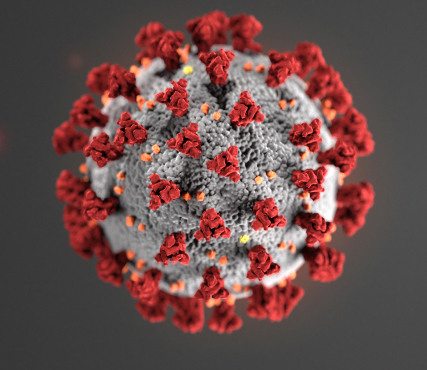||| from Emergency Operations Center, Camp Murray

Newest numbers. The Department of Health reported a total of 72,703 confirmed cases as of 11:59 pm on August 26. There have been 1,890 COVID-19 deaths in Washington.
For the most recent tally of cases by county, demographics, and more, visit the Department of Health’s dashboard and the state’s COVID-19 risk assessment dashboard.
COVID-19 Long-term Care Report. As of August 24, a total of 6,487 COVID-19 cases (9% of total cases) and 1,036 deaths (56% of total deaths) have been identified as associated with a long-term care facility (i.e., nursing home, assisted living facility or adult family home).
- These cases include residents as well as employees and visitors. Not all of these cases were exposed at a LTC facility.
- Many cases visited multiple places during their exposure period, and some individuals may have visited a LTC facility after disease onset.
Read the full report here.
COVID-19 testing still advised for people with symptoms and close contacts of confirmed cases. The Washington State Department of Health’s guidance around testing has not changed: if you have symptoms, you need to get tested. If you’re a close contact of a confirmed case, you need to get tested. Close contacts of confirmed cases also need to stay at home away from others (quarantine) for 14 days after the last exposure even if they test negative for COVID-19, because it is possible for people who test negative to still be incubating the virus, and become contagious later.
People with symptoms of COVID-19 or who have had close contact with someone who tested positive for COVID-19 should make testing their first priority. However, timing is key. Testing too soon after an exposure may give you a negative result, even if you’ve been infected. If exposed and you develop symptoms, testing that day or the next is recommended. If exposed and you don’t develop symptoms, waiting 5-6 days after exposure to get a test is recommended. People must stay in quarantine for the entire 14 days even if a test is negative. Read the full news release here.
Updated Safe Start guidance for modified Phase 1 counties. On Wednesday, August 26, the Washington State Department of Health announced a standardized set of activities for counties in modified Phase 1 of Gov. Jay Inslee’s Safe Start plan.
To date, Benton, Franklin, Chelan, Douglas and Yakima counties had different approved activities in their modified Phase 1 plans. To create consistency in allowed activities, the state worked with local jurisdictions to agree on one set of activities that will be applied to all counties in modified Phase 1.
Today, August 27, the following new activities are permitted in Benton, Franklin and Yakima counties: outdoor group fitness classes with five or fewer people, indoor religious services at 25% capacity or 50 people (whichever is less), social gatherings with 5 or fewer people outside the household per week, professional services at 25% capacity and more.
For Chelan and Douglas counties, the following new activities are permitted as of August 27: limited activities in regulated pools, indoor religious services at 25% capacity or 50 people (whichever is less), curbside library services, drive in movies and more. Chelan and Douglas counties will have their in-store retail occupancy reduced from 50% to 30%, consistent with modified Phase 1 and Phase 2 guidance.
For a list of counties and their current phases, visit the Safe Start website.
Read the full news release here.
As COVID-19 spikes among young adults, research shows vaping is associated with catching COVID. Recent state data show adults ages 20 to 39 represent a higher percentage of coronavirus cases than any other age group in the state. This comes as vaping among teens and young adults in our state has also skyrocketed, with nearly 30 percent of high school seniors saying they use vapor products. A new study shows young people who reported ever having used e-cigarettes were five times more likely to test positive for COVID-19 than non-users.
Teens and young adults who want to quit vaping or smoking can get access to several resources in Washington state. In January, the state Department of Health (DOH) began offering This is Quitting, from Truth Initiative. This first of its kind, free teen-friendly texting program for quitting vaping, was created with input from teens and young adults who attempted or succeeded in quitting e-cigarettes. This is Quitting is tailored by age group to give supportive text messages and information about quitting vaping. To enroll, teens and young adults can text VAPEFREEWA to 88709. Read the full news release here.
**If you are reading theOrcasonian for free, thank your fellow islanders. If you would like to support theOrcasonian CLICK HERE to set your modestly-priced, voluntary subscription. Otherwise, no worries; we’re happy to share with you.**







